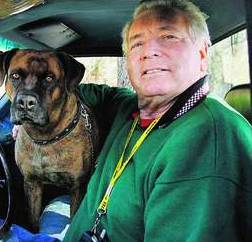|
|
|
With No Pension Plan,
NASCARís First
Stars are Easily Forgotten
Detroit Free Press
February 7, 2007

The living room of Sam Ard's brown doublewide trailer speaks to his short but successful NASCAR career. Trophies surround the fireplace and crowd its mantel. Plaques and pictures dot the living room walls.
What's not there speaks to Ard's life after NASCAR, the two championship rings and a handful of grandfather clocks from Martinsville Speedway that he sold because "we was running short on cash."
Unlike veterans of other sports, Ard has no pension to fall back on.
As the booming stock-car series built by men such as Sam Ard heads to Daytona International Speedway this week to kick off its 59th season, NASCAR remains the only major-league sport without a pension plan.
"You can drive for NASCAR, but when it's over, it's over. You get nothing," Ard said. "When you fall out of racing or something happens to you, it seems like NASCAR just forgets about you. It's your friends and the people around the race track who have to remember you and keep you going."
Other leagues have pensions. Today's 10-year veterans in baseball will receive a six-figure annual payout beginning at age 62. Even middle-of-the-road professional golfers can pile up millions under the PGA Tour's deferred-compensation plan, which puts money away for players based on performance.
An NFL player with six seasons between 1998 and 2003 will get about $2,500 a month beginning at age 55, and the NBA has a similar plan. The NHL contributes about $45,000 per year to retirement accounts for veterans. The ATP and WTA tours make annual contributions averaging between $7,500 and $9,500 to retirement accounts for each tennis player.
NASCAR's policy always has been that its drivers are "independent contractors" who bear full responsibility for their finances, health care, retirement and life insurance.
Few in NASCAR are arguing for a fund to help today's drivers, who make millions from team contracts and even more from race purses and merchandise sales. Jeff Gordon, the sport's all-time money leader, has won a record $82,366,716 through 14 full seasons and isn't sure what the responsibility should be.
"We don't want to make NASCAR go broke like some other companies out there with pension plans have done," said the four-time Nextel Cup champion. "We all need to be responsible for our actions. You've got to plan.
"But how can they help us? Can they help us with some time with a financial adviser? Can they give us some kind of benefit plan to get us started? Just some level of assistance to get people going in the right direction."
Old-timers have lobbied for years for some sort of fund to help repay the men, like Ard, who contributed to the sport and now are struggling to make ends meet.
"It would almost cost nothing," said Jack Ingram, the 1985 Busch champion. "It wouldn't be many people that's not wealthy that contributed a lot to this sport, but they're ... destitute. (Ard's) a NASCAR champion; he's living in a trailer house. It shouldn't be that way."
|
|
|



